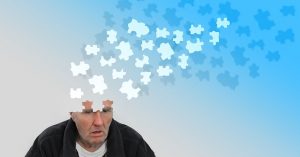Dementia is becoming a major worry as the population ages. It is anticipated that by 2050, there will be more than 150 million people globally living with dementia. While there is no treatment for this set of brain illnesses that impact memory, thinking, and communication, there are techniques to control symptoms and maybe delay the disease’s course.
Fortunately, research has shown that lifestyle changes can improve brain function and may even lower the risk of acquiring dementia.
In this post, we’ll look at several evidence-based practises that people can use to aid themselves or loved ones with dementia. We’ll present practical recommendations for anyone wishing to improve their quality of life while living with dementia, from physical activity to cognitive training to nutritional adjustments.
Understanding Dementia And Its Signs
 Dementia is a degenerative neurological condition that causes memory loss, communication difficulties, and personality changes.
Dementia is a degenerative neurological condition that causes memory loss, communication difficulties, and personality changes.
It is a difficult disorder with considerable diagnostic and treatment hurdles. Early detection of symptoms can assist persons in receiving proper care and improving their quality of life.
Diagnosis difficulties are common in dementia cases because symptoms differ from person to person. Analysing medical history, physical examination, cognitive testing, and brain imaging techniques are all part of the diagnosing process.
However, some people may not show obvious indicators of dementia in the early stages, resulting in delayed or erroneous diagnosis. As a result, for accurate assessments, it is critical to speak with an expert.
Care options for people with dementia are determined by the severity of the disease and its influence on everyday activities. Lifestyle changes such as frequent exercise, a good diet, and social involvement can assist improve cognitive performance in mild cases.
Medication to treat symptoms such as anxiety or depression may be prescribed in moderate to severe cases. Carers also play an important role in giving emotional support and aid with daily duties.
It is critical to recognise that dementia affects not only the individual but also his or her family and loved ones. Seeking expert assistance early on can help reduce stress and provide a better understanding of the condition’s impact on daily life.
While there is currently no cure for dementia, adequate treatment alternatives can dramatically improve a person’s quality of life and halt disease progression.
The Importance of Lifestyle Changes
Individuals with dementia, like a ship traversing choppy waves, may struggle to stay afloat amidst the obstacles of their condition. However, lifestyle changes can act as life rafts, providing support and direction through these trying times.
Individuals with dementia can improve their general well-being and potentially reduce the pace of their cognitive deterioration by incorporating healthy behaviours into their everyday routines.
Practising mindfulness practises is a helpful lifestyle modification for people with dementia. This entails focusing one’s attention on the present moment and creating an open and accepting attitude towards one’s thoughts and feelings. Mindfulness has been found in studies to reduce stress, anxiety, and sadness in dementia patients while also increasing general cognitive function.
Social involvement is another important part of maintaining a healthy lifestyle for persons with dementia. Social connection stimulates the brain and boosts emotions of happiness and fulfilment, whether it is through group activities or simply spending time with loved ones. Furthermore, social interactions allow individuals with dementia to practise communication skills and engage in meaningful conversations.
At first, incorporating mindfulness practises and social engagement into one’s daily routine may appear difficult, but tiny actions can make a great difference. Simple mindfulness practises such as daily journaling or listening to relaxing music can be beneficial, while joining a local support group or engaging in community events can provide opportunities for social connection.
Individuals with dementia can negotiate the obstacles of their condition with greater comfort and grace if they prioritise certain lifestyle changes.
Physical Activity and Brain Health
Physical activity has been shown to help prevent and treat dementia symptoms. Exercise boosts blood flow, which increases oxygen and nutrients to the brain. Exercising vigorously can also encourage the formation of new brain cells and synapses, hence increasing cognitive performance.
There are numerous sorts of physical activity that can improve brain health. Aerobic workouts raise the heart rate and boost blood flow to the brain, such as walking, running, or cycling. Resistance training, such as weight lifting or resistance band exercises, has also been demonstrated to boost cognitive performance.
Other activities, in addition to regular physical exercise, can aid improve brain function. Crossword puzzles and Sudoku are examples of brain games that challenge the intellect and develop cerebral connections. Mindfulness meditation has also been proven to enhance grey matter in areas related with memory and emotional control.
It’s vital to remember that incorporating physical activity into your routine doesn’t have to be difficult or time-consuming. Even tiny amounts of regular movement, such as going for a quick walk around the block or stretching for a few minutes each day, can have a big influence on your overall health and cognitive performance.
- Aerobic exercise enhances cardiovascular health by improving blood flow and brain oxygenation.
- Resistance training encourages the formation of new neural connections in the brain.
- Brain games test cognitive abilities while also stimulating cerebral pathways.
- Mindfulness meditation has been proven to enhance grey matter in regions related with memory and emotional control.
You can help prevent or reduce dementia symptoms by adding physical activity into your daily routine and engaging in activities that promote cognitive function. Remember to check with your doctor before beginning any new workout routine.
Mental Stimulation And Cognitive Training
Cognitive training and mental stimulation are two strategies that can benefit those suffering from dementia.
Memory games and brain teasers are two types of cognitive training that can be used to improve cognitive skills such as attention, memory, and problem solving.
Memory games like card matching or word recall exercises can help you enhance your short-term memory. Crossword puzzles and Sudoku are two brain teasers that might help you enhance your problem-solving skills. These exercises serve to stimulate neuronal growth and keep the brain active.
Cognitive training should be matched to the needs, interests, and talents of the individual. The workout should be demanding but not too difficult. As the person progresses, the level of difficulty must be gradually increased.
In addition to cognitive training, individuals with dementia can benefit from mental stimulation through social engagement, physical activity, and artistic expression.
Music therapy or painting lessons, for example, can help lessen symptoms of depression and anxiety while also increasing overall well-being.
Dietary Modifications And Brain-Boosting Foods
Dementia is a brain condition that causes memory loss, cognitive impairment, and other neurological symptoms. While there is no known cure for dementia, dietary adjustments have been proven in multiple trials to help lessen the chance of developing the condition.
Incorporating brain health superfoods into your diet will increase cognitive performance and general brain health. Superfoods are foods that are high in antioxidants, vitamins, and minerals. These foods have been demonstrated to help protect the brain from free radical damage, which can contribute to dementia development.
Blueberries, salmon, walnuts, avocados, and broccoli are some examples of brain-healthy superfoods. In addition to introducing superfoods into your diet, staying hydrated is essential for brain health.
Dehydration has been related to an increased risk of dementia because it reduces blood supply to the brain. Drinking plenty of water throughout the day can assist ensure that your brain gets enough oxygen and nutrients. Overall, making dietary modifications and including brain-boosting foods in your diet can help to lower your chance of getting dementia and enhance overall cognitive function.
Choose nutrient-dense foods like blueberries, salmon, and avocadoes to help protect your brain from free radical damage, while staying hydrated helps maintain blood flow in your body. Working closely with a healthcare practitioner who can advise you on which meals may be most useful to you based on your unique needs and medical history is essential.
Is Dementia Completely Curable?
Dementia is a chronic, severe disease that affects millions of individuals around the world. Unfortunately, there is no cure for dementia at the moment, and it is a degenerative condition that worsens over time.
However, studies have shown that making lifestyle changes can dramatically lower the risk of acquiring dementia. In fact, studies have revealed that lifestyle modifications such as regular exercise, a good diet, and mental stimulation could potentially prevent up to one-third of all occurrences of dementia.
While there is no cure for dementia, adopting proactive efforts towards prevention can significantly improve cognitive health and general quality of life.
Is there a certain age at which someone is more likely to get dementia?
The risk of having dementia rises with age. There is, however, no set age at which someone is more likely to develop this illness.
A range of factors, including genetics, lifestyle choices, and environmental circumstances, can contribute to dementia. While there is no treatment for dementia, certain lifestyle changes can help lower the risk of developing it.
Maintaining a nutritious diet and engaging in regular physical activity, for example, can assist enhance general brain function and lower the risk of cognitive decline. Furthermore, keeping socially involved and mentally stimulated through activities such as volunteering or acquiring new skills may help lower the incidence of dementia.
Can Herbal Supplements And Alternative Medicine Help With Dementia?
Herbal supplements and alternative medicine have been promoted as potential dementia treatments, although there is little evidence to support their usefulness.
Ginkgo biloba, omega-3 fatty acids, and vitamin E are among herbs and supplements that may assist improve cognitive performance. These, however, should not be used as the sole treatment for dementia.
Regular exercise, a good diet, and social involvement have all been found to improve cognitive function and decrease the course of dementia.
Before beginning any new herbal supplement or alternative medicine regimen, please consult with a healthcare physician.
What Effects Do Emotions And Stress Have On Dementia?
Emotions and stress may wreck havoc on the brain, especially in dementia patients.
Emotional regulation and stress management are critical components in managing dementia symptoms.
When emotions are high, confusion and forgetfulness might worsen.
Stress can even trigger brain inflammation, which can lead to cognitive deterioration.
Stress management measures, such as exercise and relaxation techniques, can help ease some of the symptoms of dementia.
To guarantee effective care and support for individuals with dementia, it is critical to address emotional regulation and stress management early in the disease process.
How Can Family Members And Carers Help A Dementia Patient?
To support a person with dementia, family members and carers must manage behaviours and create a safe atmosphere.
Wandering, irritation, and hostility can be difficult to control, but there are ways that can help. Maintaining a steady routine, giving familiar objects or activities, utilising gentle redirection or diversion strategies, and avoiding overstimulation are examples of these.
Creating a safe workplace entails removing potential hazards such as sharp objects or chemicals, installing locks on doors and windows, and making sure there is enough lighting.
To assist ease anxiety and confusion, it is also crucial to provide emotional support and maintain open communication with the person with dementia.
To summarise, while there is no known cure for dementia, there are techniques to control symptoms and improve quality of life.
It is crucial to highlight that while age is a key risk factor for dementia, it can also affect younger people.
Herbal supplements and complementary medicine have not been demonstrated to be effective dementia therapies.
Emotions and stress can also contribute to the advancement of dementia, thus it is critical to address and manage these issues.
Family members and carers can help by providing a safe and comfortable atmosphere, fostering social engagement, and engaging in cognitive-enhancing activities.
Dealing with dementia is not easy, but with adequate care and attention, it is possible to live a full life despite the obstacles it poses.









